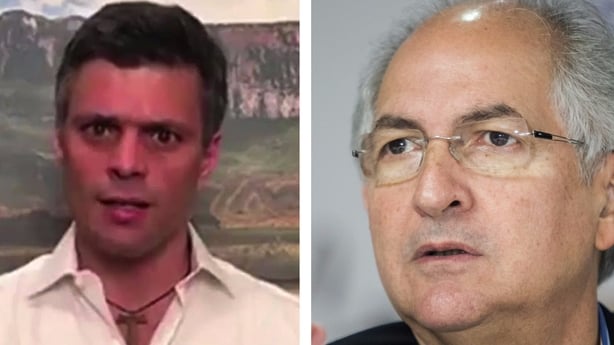Venezuela's opposition has readied itself for massive protests against a freshly elected legislative superbody that is expected to hand President Nicolas Maduro vast new powers.
Opposition leader Freddy Guevara urged people to take to the streets tomorrow to prevent the new Constitutional Assembly, dominated by the ruling Socialist Party, from entering and occupying the halls of the opposition-led congress.
The new body will have the power to rewrite the constitution and remove what checks still remain on Mr Maduro's authority.
The opposition refused to run in Sunday's election of the assembly.
All those elected to the 545-member body were chosen from among well-known Socialist leaders and rank-and-file pro-government activists.
Despite calls from the United Nations for political dialogue as the only way to settle Venezuela's political and humanitarian crisis, Mr Guevara said, "Now is a time for action, not words."
More than 120 demonstrators have been killed in more than four months of protests.
Stone-throwing youths have been met by rubber bullets and tear gas canisters lobbed by security forces while many of Mr Maduro's supporters have remained steadfast.
Oil workers loyal to the president rallied in several energy producing regions of the country today.
Chanting and carrying the red Socialist Party flag, they denounced sanctions slapped on Mr Maduro by the United States on Monday, which froze his assets subject to US jurisdiction.
International observer says elections were fair and free
"We are here to show our rejection of the intervention of the United States," one demonstrator said during a televised rally, calling the sanctions "a political show with harmful economic consequences for the people of Venezuela."
Only 3.7 million people had voted by 5.30pm in the Constitutional Assembly election, according to internal electoral council data reviewed by Reuters, casting doubt on the 8.1m people authorities said had voted that day. Voting lasted until 7pm.
An international observer of the Venezuelan Constituent Assembly elections has said he thought the elections were fair and free.
SIPTU Organiser Adrian Kane said he spent most of his time looking at the electoral process in the state of Vargas.
Speaking on RTÉ's Morning Ireland, he said there is an electoral process in Venezuela, where they have had 21 elections in 19 years, and said most international observers have found all of them to be fair and free.
He said he has heard about allegations of intimidation and people obliged to turn out to vote, but said all he saw was integrity and enthusiasm.
Mr Kane said he believes the purpose of the election is the bigger question and much more controversial.
"What is the purpose of it rather than an election system that has been proven and tested over the years," he added.
Trump holds Maduro responsible for jailed opponents'

Venezuelan soldiers are increasingly weary of the popular backlash against their role in quelling protests, and a big question is whether the military will remain loyal to Mr Maduro.
Yesterday, US President Donald Trump warned that Mr Maduro would be held responsible for the health of two opposition politicians jailed soon after Sunday's vote was concluded.
In a statement, Mr Trump used the "D" word for the first time to describe Mr Maduro as a "dictator," a designation the Venezuelan opposition has long used to describe the former bus driver and union leader.
Mr Maduro, like his predecessor and mentor, the late Hugo Chavez, regularly laughs off criticism from the US.
However the United States is Venezuela's top crude importer.
There have been rumblings in US Congress this week about placing sanctions on Venezuela's oil sector, which is the country's only substantial source of export dollars needed to keep the government afloat.
Despite vast crude reserves, the country is in a deep recession and is suffering from food and medicine shortages aggravated by the world's highest inflation rate.

